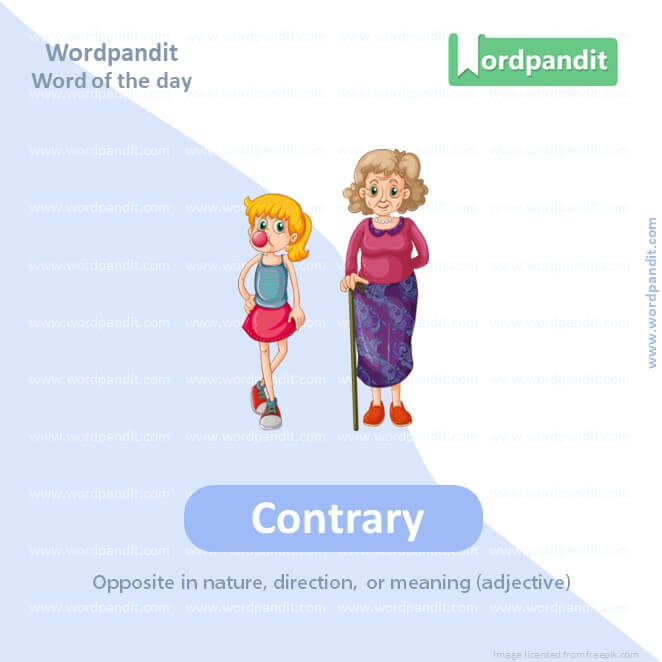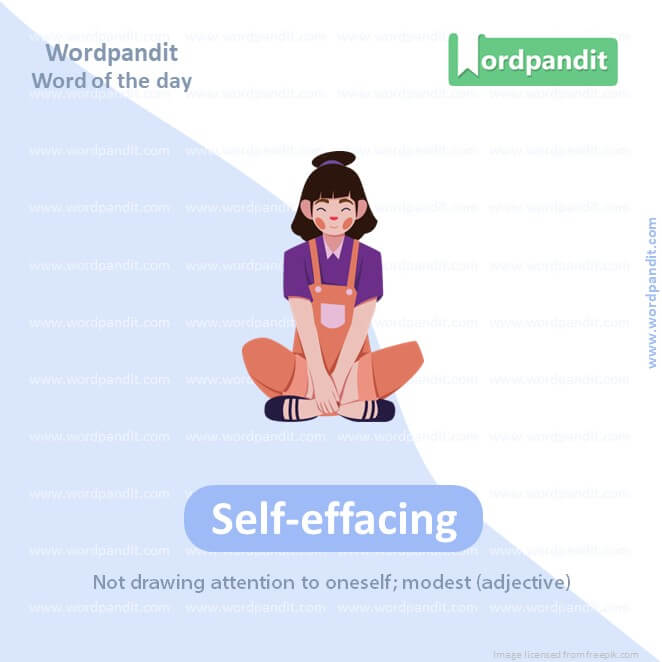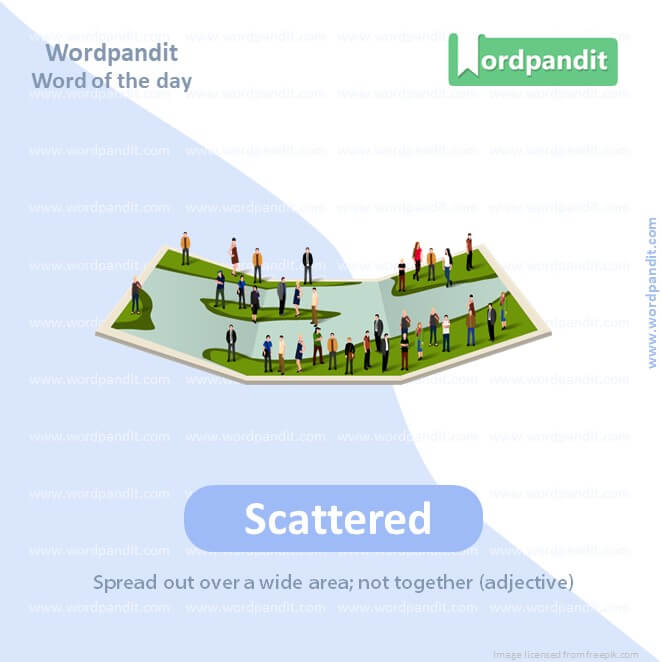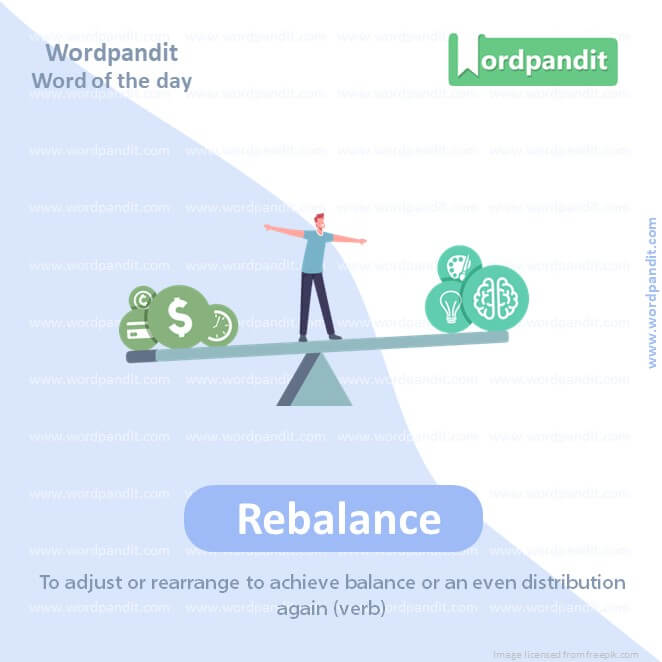Daily Vocabulary Words: List of Daily Used Words in Leading Indian Newspapers
Hi there. Welcome to this special section @ Wordpandit. Our endeavour here is straightforward: highlighting daily vocabulary words that you would come across in leading newspapers in the country. We have included the following newspapers in our selection:
• The Times of India
• The Economic Times
• Hindustan Times
• Mint
• Indian Express
We are putting in extensive work to develop your vocabulary. All you have to do is be regular with this section and check out this post daily. This is your repository of commonly used words; essentially, we are posting a list of daily used words. Hence, this has significant practical application as it teaches you words that are commonly used in leading publications mentioned above.
Visit the website daily to learn words from leading Indian newspapers.
WORD-1: Applauding
CONTEXT: Most importantly, he took India to the high table of global governance, with every country applauding and respecting his leadership and India’s global role.
SOURCE: Indian Express
EXPLANATORY PARAGRAPH: Imagine watching a play or a performance, and when it ends, everyone claps their hands. “Applauding” means clapping to show you enjoyed it or to show support for the performers.
MEANING: Show approval or praise by clapping (verb).
PRONUNCIATION: uh-PLAW-ding
SYNONYMS: clapping, cheering, praising, acclaiming, commending
USAGE EXAMPLES:
1. The audience was applauding loudly after the concert.
2. She received a standing ovation with everyone applauding.
3. The teacher was applauding the students for their hard work.
4. After the speech, the crowd started applauding enthusiastically.
WORD-2: Entanglement
CONTEXT: Such leverage will make that country vulnerable to greater debt entanglement.
SOURCE: Hindustan Times
EXPLANATORY PARAGRAPH: Imagine your headphones and how they sometimes get all twisted and tangled up in your pocket. “Entanglement” is when things are twisted together in a complicated way, and it’s hard to separate them.
MEANING: A complicated or compromising relationship or situation (noun).
PRONUNCIATION: en-TANG-guhl-ment
SYNONYMS: complication, involvement, entrapment, snarl, imbroglio
USAGE EXAMPLES:
1. The legal entanglement took years to resolve.
2. Their relationship was full of emotional entanglements.
3. He wanted to avoid any financial entanglements.
4. The film explores the entanglement of love and betrayal.

WORD-3: Bridging
CONTEXT: the military leadership has also shown keen interest in bridging the relationship with the US, laying the ground for the civilian government to further promote defence and economic cooperation.
SOURCE: Hindustan Times
EXPLANATORY PARAGRAPH: Imagine two islands separated by water, and someone builds a bridge to connect them so people can easily go from one island to the other. “Bridging” means making a connection between two things that were separate before.
MEANING: The act of making a connection or link between two things or places (verb, present participle).
PRONUNCIATION: BRIJ-ing
SYNONYMS: connecting, linking, spanning, joining, coupling
USAGE EXAMPLES:
1. The new bridge is bridging the two communities effectively.
2. They were working on bridging the gap between generations.
3. Bridging cultural divides is essential for international business.
4. The course aims at bridging theory and practice.

WORD-4: Contrary
CONTEXT: As democracies in the developed West flounder in chaos and uncertainty, contrary to the false commentary of the jealous and often supremacist clique, India is going to lead the democratic world by presenting a shining example in this new year.
SOURCE: Indian Express
EXPLANATORY PARAGRAPH: Imagine you want to play outside, but your friend wants to stay indoors. Being “contrary” means being opposite or very different from something else, or doing the opposite of what others are doing.
MEANING: Opposite in nature, direction, or meaning (adjective).
PRONUNCIATION: KON-trair-ee
SYNONYMS: opposite, conflicting, contradictory, adverse, counter
USAGE EXAMPLES:
1. Her actions were contrary to the rules.
2. He held a contrary opinion on the matter.
3. The weather was contrary to what the forecast predicted.
4. Contrary evidence led to a different conclusion.

WORD-5: Self-effacing
CONTEXT: His cricketing career is not just a benchmark of success and excellence, but stands as a testament to his character, marked by humility and self-effacing grace, and is a symbol of hope for millions across India where cricketers once rose only from the major metropolises.
SOURCE: Indian Express
EXPLANATORY PARAGRAPH: Imagine someone who does amazing things but doesn’t like talking about themselves or taking credit. “Self-effacing” is when someone doesn’t want to draw attention to themselves and is very modest.
MEANING: Not drawing attention to oneself; modest (adjective).
PRONUNCIATION: self-ee-FAY-sing
SYNONYMS: modest, humble, unassuming, retiring, demure
USAGE EXAMPLES:
1. Despite her success, she was self-effacing and shy.
2. His self-effacing manner made him well-liked by his peers.
3. She gave a self-effacing speech, highlighting her team’s effort.
4. He was a self-effacing leader, always praising others.

WORD-6: Scattered
CONTEXT: Although their relevance is scattered across various versions of the Ramayana, Sita, Kaikeyi and Mandodari exist in the shadow lines of their husbands — Ram, Dasharath and Ravan — flickering between myth-making and historicity, finally settling into a metaphor.
SOURCE: Indian Express
EXPLANATORY PARAGRAPH: Imagine you have a box of colored pencils, and it accidentally falls on the floor, spreading the pencils all over the place. “Scattered” means spread out over a large area or randomly dispersed.
MEANING: Spread out over a wide area; not together (adjective).
PRONUNCIATION: SKAT-erd
SYNONYMS: dispersed, spread out, strewn, sprinkled, distributed
USAGE EXAMPLES:
1. The toys were scattered all over the living room.
2. After the storm, leaves were scattered across the park.
3. The village consisted of houses scattered along the coastline.
4. They found scattered evidence throughout the area.
WORD-7: Predetermining
CONTEXT: Elections in Pakistan have mostly been a sham, with the country’s military accused of predetermining the outcome, while in Sri Lanka, a divided polity haunts the presidential election due in the second half of the year.
SOURCE: Indian Express
EXPLANATORY PARAGRAPH: Imagine if a storybook had a plan for how the story would go before you even read it. “Predetermining” means deciding something in advance, before anything starts to happen.
MEANING: Establish or decide in advance (verb).
PRONUNCIATION: pree-di-TER-min-ing
SYNONYMS: predestining, preordaining, predesigning, deciding beforehand, presetting
USAGE EXAMPLES:
1. The outcome of the game seemed to be predetermined.
2. His career path was predetermined by his family’s expectations.
3. They were discussing the importance of not predetermining a child’s future.
4. The software’s behavior was predetermined by its programming.

WORD-8: Rebalance
CONTEXT: the ruling establishments will be facing tough opposition, leading to regime changes that have the potential to influence the power rebalance in the Indo-Pacific region.
SOURCE: Indian Express
EXPLANATORY PARAGRAPH: Imagine you are playing on a seesaw, and it’s not moving because one side is much heavier than the other. “Rebalance” means adjusting things so that they are even or balanced again, just like when you move around on the seesaw to make it fun and balanced.
MEANING: To adjust or rearrange to achieve balance or an even distribution again (verb).
PRONUNCIATION: ree-BAL-uhns
SYNONYMS: readjust, realign, reposition, redistribute, recalibrate
USAGE EXAMPLES:
1. They needed to rebalance the investment portfolio to reduce risk.
2. After the new students joined, the teacher rebalanced the teams.
3. Rebalancing the economy is a priority for the government.
4. Periodically rebalancing your priorities can help maintain work-life balance.
WORD-9: Parochial
CONTEXT: Modi successfully roused among the citizens of Bharat a sense of their distinct identity as a cultural and civilisational nation that could subsume all the narrow and parochial identities of caste, language, region and religion.
SOURCE: Indian Express
EXPLANATORY PARAGRAPH: Imagine a small neighborhood where everyone knows each other, and they mostly think about what happens just in their little area. “Parochial” describes thinking or caring only about the things that affect your small group or local area, without considering wider issues.
MEANING: Having a limited or narrow outlook or scope (adjective).
PRONUNCIATION: puh-ROH-kee-uhl
SYNONYMS: narrow-minded, provincial, insular, limited, local
USAGE EXAMPLES:
1. His views were criticized as being too parochial.
2. They are fighting against the parochial attitudes of the town.
3. The debate highlighted the parochial interests of the participants.
4. She was tired of the parochial mindset that dominated the community discussions.
WORD-10: Metropolises
CONTEXT: His cricketing career is not just a benchmark of success and excellence, but stands as a testament to his character, marked by humility and self-effacing grace, and is a symbol of hope for millions across India where cricketers once rose only from the major metropolises.
SOURCE: Indian Express
EXPLANATORY PARAGRAPH: Imagine a huge city with lots of buildings, people, cars, and stores, much bigger than a town or village. “Metropolises” are big cities like this, where there are many places to see and lots of things happening all the time.
MEANING: Major cities, especially the chief cities of countries or regions (noun, plural of metropolis).
PRONUNCIATION: meh-TROP-uh-luh-sees
SYNONYMS: major cities, capitals, urban centers, megacities, city hubs
USAGE EXAMPLES:
1. She visited several European metropolises on her trip.
2. Metropolises like New York and Tokyo are known for their vibrant cultures.
3. The growth of metropolises is a sign of urbanization.
4. He studied the architectural styles of different metropolises around the world.
Vocabulary Daily Words
Among the myriad aspects of language learning, the role of ‘vocabulary daily words’ attests to their undeniable importance. These everyday words form the bedrock of communication. Whether used in casual chat or formal discussion, the fluency and understanding of ‘vocabulary daily words’ can significantly uplift the quality of interaction. However, the vital question is, how to effectively learn these ‘vocabulary daily words’?
The crux of learning ‘vocabulary daily words’ lies in a well-rounded approach that encompasses exposure, understanding, memorization, and practice. Rote memorization might seem like a quick solution, but it lacks context and, thereby, retention. Hence, opt for a diverse range of resources like books, newspapers, podcasts, and digital media. These will bring ‘vocabulary daily words’ to life, providing real-life usage examples and making the learning process inherently engaging.
Next, using memory-enhancing techniques can significantly improve retention of ‘vocabulary daily words’. Techniques such as flashcards or the Leitner System align with the principles of spaced repetition, allowing more effective and long-term learning. Incorporating mnemonic devices, associating new words with unique stories or images, can further facilitate this learning process.
The key to fully grasping ‘vocabulary daily words’ lies in practical usage. Make it a habit to use these words in your daily communications. Whether it’s a friendly conversation, a professional email, or a social media post, try integrating these new words. Doing so provides hands-on practice, strengthening your comprehension and application of these words.
In a nutshell, ‘vocabulary daily words’ are a treasure in the language learning landscape. By harnessing diversified resources, utilizing memory techniques, and actively using these words, your grip on the ‘vocabulary daily words’ will strengthen significantly. So, turn the pages, hit play, start a conversation, and let these ‘vocabulary daily words’ shape the story of your linguistic journey.











